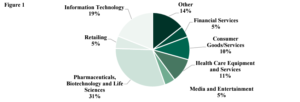Gail Weinstein is senior counsel, and Steven Epstein and Andrea Gede-Lange are partners at Fried, Frank, Harris, Shriver & Jacobson LLP. This post is based on a Fried Frank memorandum by Ms. Weinstein, Mr. Epstein, Ms. Gede-Lange, Mr. Soran, Mr. Colosimo, and Mr. Chrisope, and is part of the Delaware law series; links to other posts in the series are available here. Related research from the Program on Corporate Governance includes The Untenable Case for Perpetual Dual-Class Stock (discussed on the Forum here) and The Perils of Small-Minority Controllers (discussed on the Forum here), both by Lucian Bebchuk and Kobi Kastiel.
In City Pension Fund for Firefighters and Police Officers in the City of Miami v. The Trade Desk, Inc. (July 29, 2022), stockholders of The Trade Desk (“TTD”) challenged an amendment to the certificate of incorporation of TTD that effectively extended the duration of the company’s dual-class stock structure—which, in turn, effectively extended the duration of the voting control held by TTD’s co-founder/CEO/chairman of the board, who owned 98% of TTD’s high-vote Class B common stock, representing control over 55% of the combined vote of the stockholders. The plaintiff alleged that the controller, TTD’s board of directors, and certain officers breached their fiduciary duties in approving the charter amendment and recommending it to the stockholders (who voted to approve it).
The TTD board was comprised of the controller and seven outside directors. The amendment was approved by a special committee of the board comprised of three of the outside directors. The transaction, involving a conflicted controller, was subject to the entire fairness standard of review unless the prerequisites for business judgment review as set forth in MFW had been met. Vice Chancellor Fiorvanti concluded, at the pleading stage of litigation, that the MFW prerequisites were satisfied; and the case thus was dismissed.

